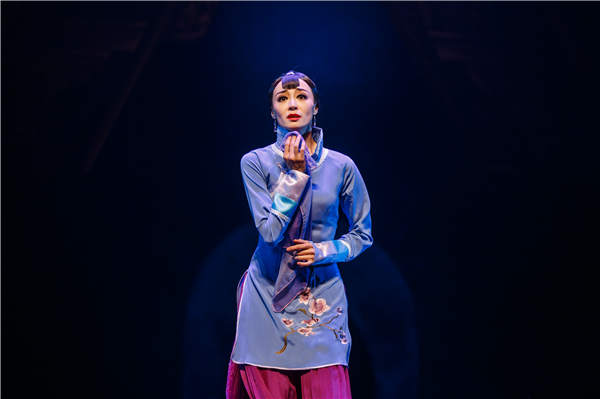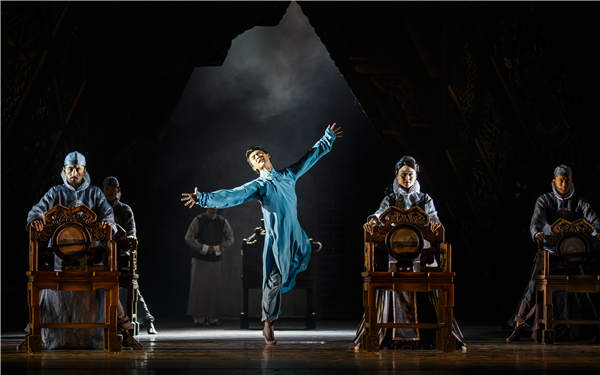
The late Chinese writer Ba Jin wrote his famous novel Family in 1931.
It's a tale of three brothers from the Gao family, whose aspirations and love were crushed in an old family of three generations under the reign of the patriarch, grandfather Gao.
The book, based on the writer's childhood in a rich family in Southwest China's Sichuan province, inspired many young Chinese to examine and rebel against the feudal society back then-and the story continues to inspire today's readers.
For He Chuan, the artistic director of Sichuan Song & Dance Ensemble, the novel is perfect for stage adaptation.
In 2009, He, a Sichuan native, began to work on the dance drama Family. Six years later, it premiered last fall during the first Sichuan Art Festival.
This week, Family will be staged at the National Center for the Performing Arts in Beijing.
The four-act dance drama, which unfolds in the course of two funerals and two weddings, highlights the oppression of the old social system and how a young generation tries to break it. He focuses the idea of the drama mainly on life and death, old and new.
"The theme of the novel is timeless, which appeals to contemporary audiences since the young generation shares the roles' confusion over life and love," says He.

As a director who has staged Sichuan-themed dance dramas, including Sichuan Girls and Sichuan Teahouse, He continues his usual style of employing elements of Sichuan culture like the local opera and architecture.
Wooden chairs are used as impressive set designs in the drama. Actors dance with chairs, an act which, the director says, is a symbol of the darkness, suffocation and tragic love in the story.
"One of the main roles in the drama is that of grandfather Gao, representing the old power and rigid tradition. Throughout the work, the actor's back faces the audience, and he doesn't turn around until the end of the drama, which is a highlight of the choreography," says He.
"I have been living in Chengdu for decades," he adds, "and besides giving Ba Jin's novel a different interpretation, I also want the audience to better understand the local culture through the dance drama."
If you go
7:30 pm, July 27 and 28. National Center for the Performing Arts, 2 West Chang'an Avenue, Xicheng district, Beijing. 010-6655-0000.


















































